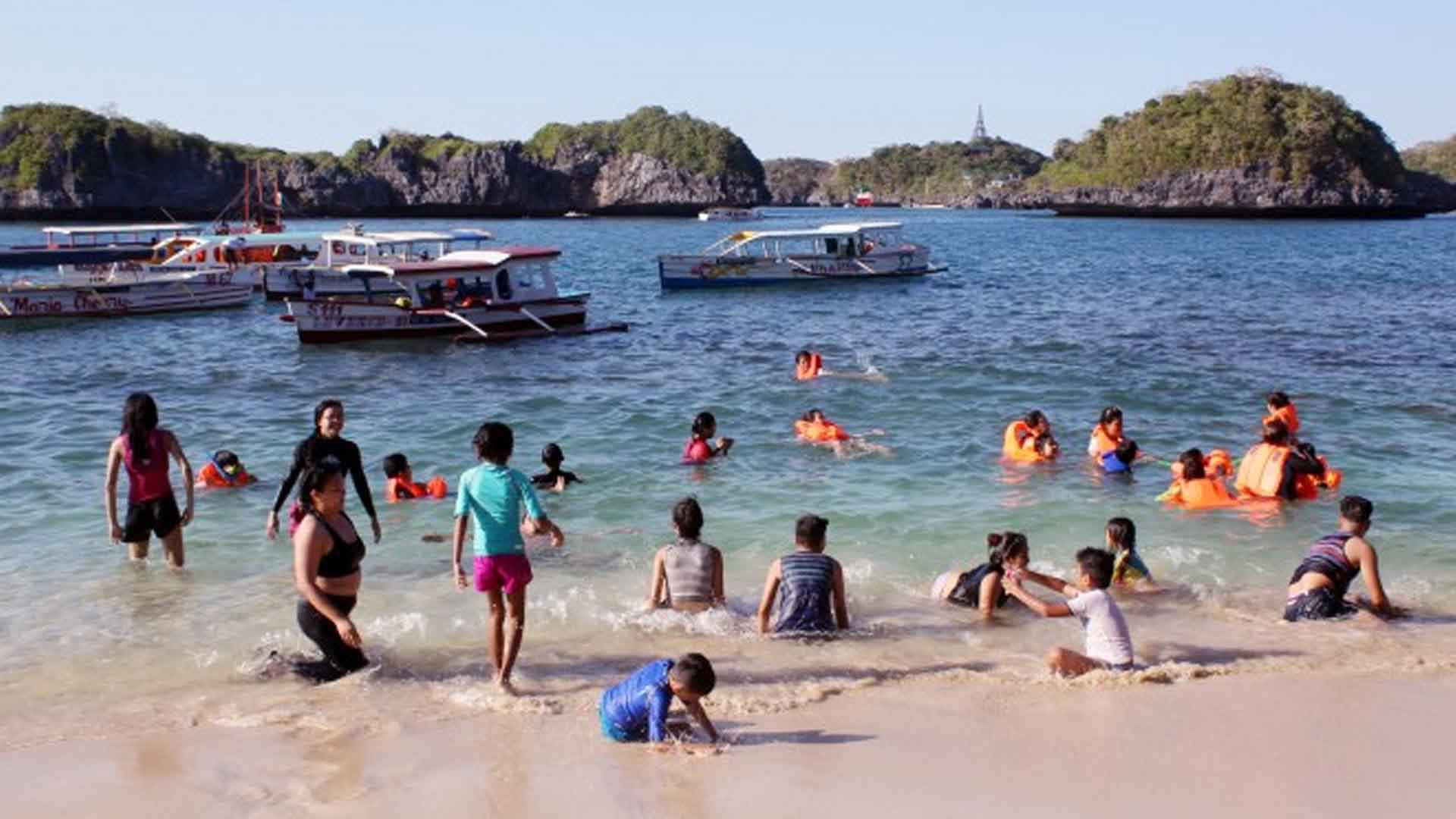Tourist arrivals in the Hundred Islands National Park (HINP) in Alaminos City in this province reached 438,619 last year, higher by 12 percent compared to the 389,006 visitors in 2022.
In a phone interview on Tuesday, city tourism officer Miguel Sison said out of the total number, 289,413 were domestic tourists, 140,970 were local tourists, and the rest were foreign tourists.
Sison attributed the increase in tourist arrivals to the easing of travel restrictions, the natural scenery at the famous national park, and the activities it offers.
The increase in arrivals also resulted in higher tourism receipts of some PHP44 million against the PHP33.3 million income in 2022.
Although the number of tourist arrivals has not yet fully returned to its pre-pandemic level of 520,000 in 2019, the number is already beyond the number of visitors to the national park in 2020 at 93,000 and in 2021 at 50,000.
He said most tourists came during the Holy Week, while cruise ships have also visited the HINP.
Sison said they recently opened the Bonsai Garden at Ramos Island to serve as another attraction, catering to “bonsai” lovers.
Other attractions included the Pilgrimage Island and a 448-meter-long boardwalk at the Mangrove Park in Barangay Bued, which is open to the public from 6 a.m. to 7 p.m.
Activities allowed at the park include bird, bat, and monkey watching, and water sports.
The city also has the engineered “kawayan” (bamboo) factory where visitors can buy souvenirs or accessories or watch in groups a demonstration on how engineered or e-bamboos are used for livelihood.
Entrance to the park requires a minimal fee, while the entrance to the factory is free.
Meanwhile, the city government of Alaminos City revised its tourism code to align with the standards of the Department of Tourism to benefit both the tourists and the workers.
“We will also have local accreditation but we will be using local registration form. We will have an initial categorization of the establishment’s classification according to the DOT standard,” City Tourism and Cultural Affairs Office assistant head Rose Aruelo said in a separate interview.
The city government implemented the new tourism code starting Dec. 1 last year.
Aside from business permits, the city government also requires annual general liability insurance for guests, a schedule of current rates, and a safety declaration certificate in compliance with the occupational safety and health standards, among others, she said.
There will be changes in fees at the Hundred Islands National Park (HINP) in line with the new tourism code.
“Some fees were retained while some increased. The rationale is for the development of the islands. The developments require a higher amount of revenue for maintenance of facilities and cleanliness of areas,” Aruelo said.
Registration fee for the day tour at HINP will be increased by PHP20 to PHP120 per person, while the overnight tour registration will be PHP200 per person. The registration fee covers the environmental and entrance fees and insurance coverage.
Motorboat rates also have slight changes.
HINP is now offering an island exclusivity package from PHP80,000 to PHP150,000, depending on the island and the schedule.
“The package will include security personnel, first aider, and helper to assist guests in the islands,” Aruelo added.
Within the HINP, the “Basura Mo, Iuwi Mo” is still being implemented, where guests deposit PHP200 and are provided with two bags to dispose of their biodegradable and non-biodegradable wastes.
Guests can have their PHP200 deposit back once they surrender the garbage bags with their disposed waste.
Another best practice in the city is their Scubasurero program (from the words scuba diving and “basurero” or garbage collector), which started in 2016 and involves volunteer scuba divers cleaning the seas quarterly.
Sison said the Bureau of Fisheries and Aquatic Resources (BFAR) conducts regular inspections to ensure water quality is fit for swimming.
He assured the public that Alaminos is a very peaceful and drug-fee. (PNA)




